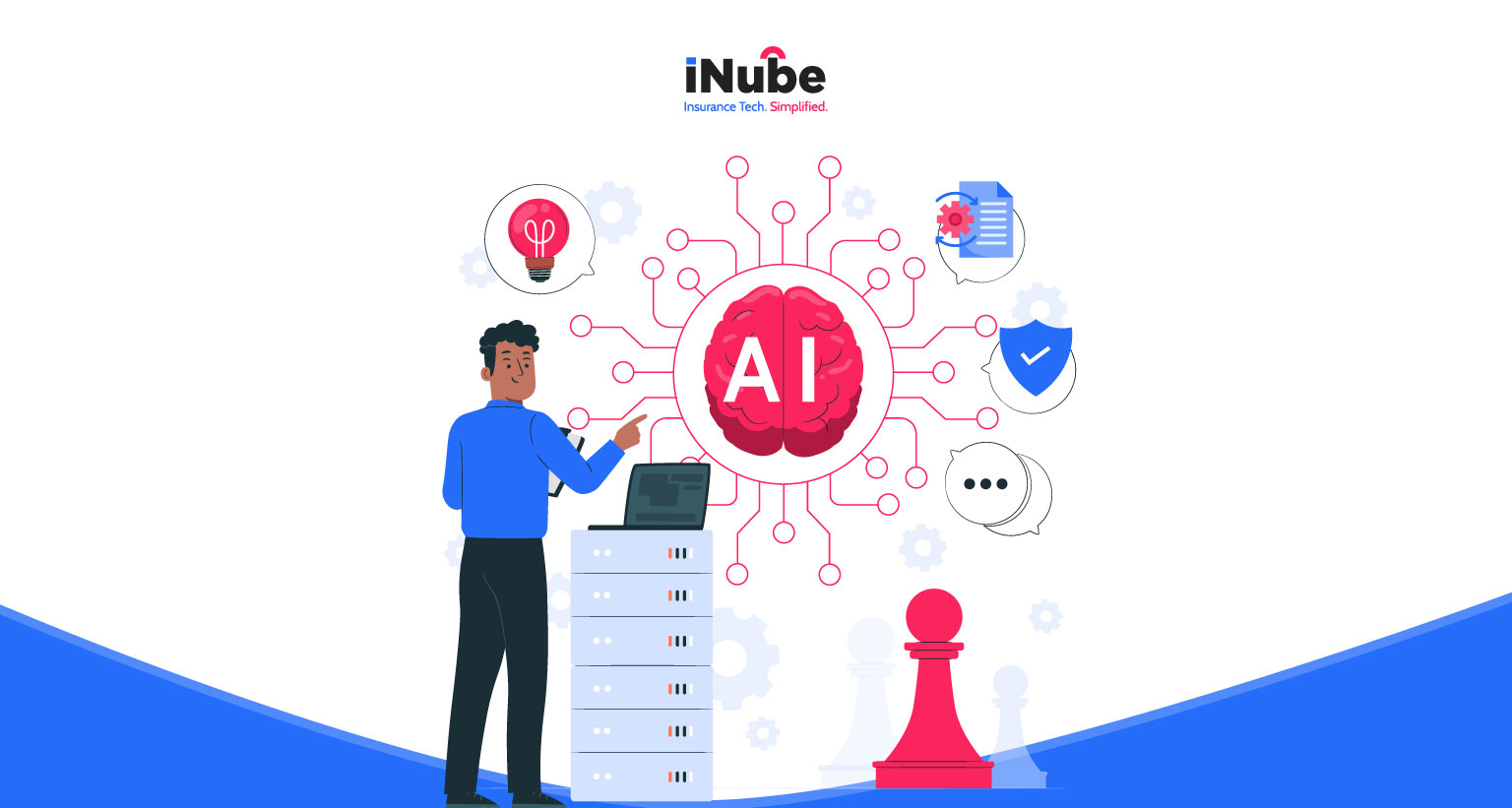In today’s fast-evolving business landscape, organizations are constantly seeking ways to stay ahead of the curve. One of the most transformative tools driving this pursuit is Artificial Intelligence (AI). When integrated into strategy and culture, AI doesn’t just optimize processes—it redefines how businesses operate, compete, and thrive. This blog explores how AI can become a cornerstone of competitive advantage, weaving it into the fabric of organizational strategy and culture, with a nod to its impact across industries, including a touch of insight for the insurance sector.
AI-Powered Strategy: A Game Changer
Strategy is the blueprint for success, and AI is the architect’s most advanced tool. By leveraging AI, companies can analyse vast datasets, predict trends, and make data-driven decisions with unprecedented precision. According to a 2023 report by McKinsey, organizations that fully embed AI into their strategic planning see an average revenue increase of 6-10% compared to their peers. This isn’t just about automation—it’s about foresight. AI enables businesses to anticipate market shifts, optimize resource allocation, and personalize offerings at scale.
Take, for instance, the ability of AI to enhance competitive positioning. A 2024 Deloitte survey found that 62% of executives believe AI-driven insights give them a significant edge in identifying new market opportunities. This is particularly relevant in industries like insurance, where AI can analyze customer data to tailor policies, predict risks, and streamline underwriting processes. The result? Faster decision-making and a sharper focus on what truly drive value.
But strategy isn’t static—it’s a living process. AI’s real-time adaptability ensures businesses can pivot quickly. For example, during supply chain disruptions, AI models can forecast delays and suggest alternatives, keeping operations smooth. This agility is a competitive moat that competitors without AI struggle to cross.
Culture: The Heart of AI Adoption
While strategy sets the direction, culture determines whether AI can truly take root. A company’s values, behaviours, and openness to change can either accelerate or hinder AI’s potential. A 2024 Harvard Business Review study found that organizations with a “learning culture” saw 30% higher employee engagement and 25% more innovation when adopting AI—because AI thrives where experimentation, collaboration, and data literacy are encouraged.
This reflects Peter Senge’s idea of a learning organization in The Fifth Discipline, where individuals continually expand their ability to achieve desired outcomes. In the context of AI, this involves fostering open mental models, systems thinking, and team learning—enabling people to adapt and grow with the technology.
Leadership plays a critical role. When executives promote AI as a tool for empowerment—not replacement—it builds trust and involvement. In insurance, for example, claims adjusters can use AI for routine tasks, allowing them to focus on complex cases that need human insight—boosting both productivity and satisfaction.
Training is equally vital. A 2023 PwC report showed 54% of firms investing in AI upskilling improved efficiency within a year. By encouraging data fluency, businesses empower teams to apply AI across functions—from marketing to risk analysis. As Senge emphasizes, embedding learning into the culture fosters resilience and adaptability. Embracing AI means more than adopting tools—it means nurturing continuous growth.
Data Points Driving the Advantage

Revenue Impact: McKinsey’s 2023 analysis shows AI-integrated strategies boost revenue by 6-10%.
Market Opportunity: Deloitte’s 2024 survey highlights that 62% of leaders see AI as key to uncovering new markets.
Cultural Edge: Harvard Business Review’s 2024 study found a 30% increase in engagement in AI-friendly learning cultures
Upskilling Returns: PwC’s 2023 data indicate 54% of companies with AI training see efficiency gains within 12 months.
These stats underscore a clear truth: AI isn’t just a tool—it’s a strategic and cultural catalyst.
Balancing AI with Human Insight
AI’s strength lies in its ability to process and predict, but it’s not infallible. Competitive advantage comes from pairing AI’s capabilities with human intuition. In insurance, for example, AI can flag potential fraud by analyzing patterns in claims data, but a seasoned investigator’s expertise confirms the suspicion. This synergy ensures AI enhances, rather than dictates, decision-making.
The same balance applies in the realm of personal well-being. AI-driven tools—like health monitors, mental wellness apps, or nutrition trackers—can provide real-time insights and encouragement. But lasting change still comes from human commitment, mindfulness, and emotional awareness. AI can nudge us toward healthier choices, but it’s our intuition and lived experience that guide sustainable habits.
Moreover, ethical considerations can’t be ignored. A culture that prioritizes transparency and fairness in AI use builds trust—with employees and customers alike. Companies that get this right don’t just gain an edge; they sustain it. And in doing so, they contribute not just to smarter systems—but to healthier, more empowered human lives.
Looking Ahead
The future of competitive advantage lies at the intersection of AI, strategy, and culture. Businesses that weave AI into their strategic vision while fostering a culture of innovation will outpace those that treat it as a bolt-on solution. In insurance, this might mean using AI to predict customer needs and offer personalized policies, all while empowering staff to focus on relationship-building. Across industries, it’s about leveraging AI to think bigger, act faster, and connect deeper.
As we move into 2025 and beyond, the question isn’t whether AI will shape competition—it’s how boldly you’ll embrace it. Strategy sets the stage, culture steals the show, and AI? It’s the spotlight that makes it all shine.

Shrinivas Susarla
Executive Vice President – Strategy and Americas

Abhay Mishra
Growth Specialist


